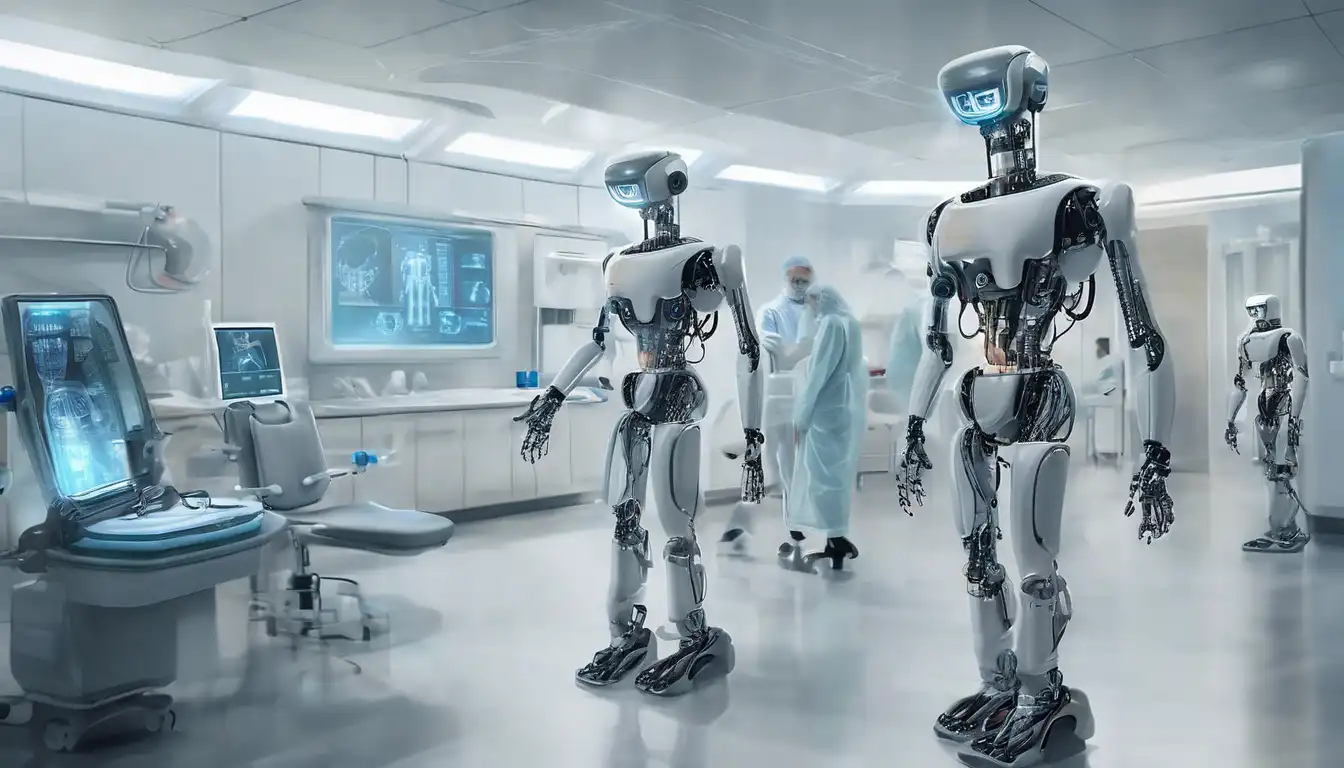The Next Era of Robotics in Healthcare
The integration of robotics into healthcare is transforming patient care, surgical procedures, and rehabilitation processes. This revolutionary approach is not just enhancing efficiency but also improving the accuracy and outcomes of medical treatments. As we delve into the future, the potential of robotics in healthcare seems boundless, promising a new era of medical excellence.
Transforming Surgical Procedures
Robotic surgery has become a cornerstone of modern medical practices, offering precision that surpasses human capabilities. With the advent of technologies like the Da Vinci Surgical System, surgeons can perform complex procedures with minimal invasiveness, reducing recovery times and improving patient outcomes.
Enhancing Patient Care
Robots are not only assisting in surgeries but are also playing a pivotal role in patient care. From robotic exoskeletons that aid in rehabilitation to automated dispensing systems that ensure accurate medication delivery, the scope of robotics in patient care is vast. These innovations are making healthcare more accessible and efficient, especially in remote areas.
The Role of AI in Robotics
Artificial Intelligence (AI) is the driving force behind the smart capabilities of healthcare robots. AI enables robots to learn from data, make informed decisions, and even predict patient needs. This synergy between AI and robotics is paving the way for personalized medicine, where treatments are tailored to the individual's unique health profile.
Challenges and Opportunities
Despite the advancements, the integration of robotics in healthcare faces challenges, including high costs and the need for specialized training. However, the opportunities outweigh the hurdles, with ongoing research and development promising more affordable and user-friendly solutions. The future of robotics in healthcare is not just about technological innovation but also about making these technologies accessible to all.
As we look ahead, the role of robotics in healthcare is set to expand, offering new possibilities for patient care and medical procedures. The fusion of robotics, AI, and healthcare is creating a future where medical treatments are more precise, efficient, and personalized than ever before.
Conclusion
The future of robotics in healthcare is bright, with endless possibilities to revolutionize patient care and medical procedures. As technology continues to evolve, we can expect to see even more innovative applications of robotics in the healthcare sector, making it an exciting time for both medical professionals and patients alike.
